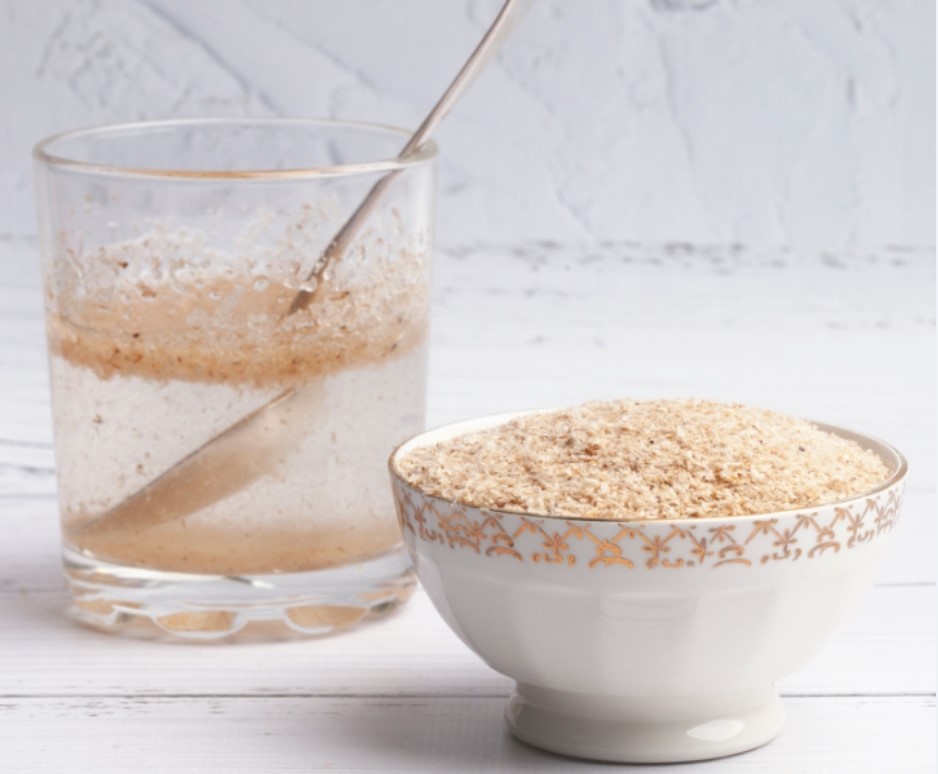Depression affects millions worldwide, disrupting daily life in profound ways. This mental health condition doesn’t just impact your emotional state—it can significantly alter your relationship with food and eating habits.
Many people experiencing depression notice changes in their appetite, with a common symptom being a decreased desire to eat. This lack of appetite can create a challenging cycle: poor nutrition can worsen depression symptoms, while depression makes it harder to maintain healthy eating patterns.
However, understanding how certain medications like Ozempic can affect appetite and fullness can provide some relief. Ozempic is known for its weight loss management capabilities, but it also comes with side effects such as prolonged feelings of fullness. Understanding these effects can help individuals manage their dietary intake better during depressive episodes.
Key symptoms of depression-related appetite changes include:
- Complete loss of interest in food
- Forgetting to eat regular meals
- Feeling too exhausted to prepare food
- Physical symptoms that make eating difficult
For those who struggle with managing their diet amidst these challenges, seeking out healthy snack options could be beneficial. This approach not only aids in maintaining nutritional balance but also supports overall mental health.
Understanding how depression influences your appetite is the first step toward managing both conditions. This knowledge empowers you to take control of your health and develop effective strategies for maintaining proper nutrition during depressive episodes. It’s also crucial to consider the implications of certain medications like Ozempic on your health journey, especially if you’re contemplating taking Ozempic while pregnant, as it’s not considered safe during pregnancy.
While the journey through depression and its related challenges can be daunting, it’s important to remember that understanding these conditions and their impacts can empower you to take control of your health. It’s also essential to acknowledge the influence of positive experiences during childhood on overall health, including mental well-being and resilience against adversity.
Understanding Depression and Its Impact on Appetite
Depression manifests through distinct emotional and physical symptoms that can significantly alter your daily life. You might experience:
- Persistent feelings of sadness or emptiness
- Loss of interest in previously enjoyed activities
- Unexplained fatigue or low energy
- Changes in sleep patterns
- Difficulty concentrating
- Physical aches and pains
The root causes of depression stem from multiple factors working together:
Biological Factors
- Alterations in brain chemistry
- Genetic predisposition
- Hormonal imbalances
Social Factors
- Traumatic life events
- Relationship difficulties
- Work-related stress
- Social isolation
Psychological Factors
- Negative thought patterns
- Low self-esteem
- Past trauma
- Perfectionist tendencies
These factors create a complex web that directly impacts your relationship with food. Depression can trigger two distinct eating patterns:
Decreased Appetite
- Food loses its appeal and taste
- Eating feels like a chore
- Reduced motivation to prepare meals
- Forgetting to eat entirely
Increased Appetite
- Emotional eating for comfort
- Craving high-calorie foods
- Using food to cope with feelings
- Mindless eating
Your brain’s altered chemistry during depression affects hunger signals and reward systems, creating a direct link between your emotional state and eating behaviors.
Interestingly, the impact of depression on appetite can also be influenced by physical health conditions such as Intestinal Methanogen Overgrowth, which is known to cause changes in appetite and gut health. These gut microbes may even play a hidden role in conditions like constipation that further complicate these eating patterns.
Moreover, if you’re undergoing weight loss management, it’s crucial to understand how certain medications like Wegovy interact with alcohol, as this could have implications on both your mental health and appetite. For essential tips regarding Wegovy and alcohol consumption, it’s advisable to consult healthcare professionals.
Why Does Depression Lead to a Decreased Appetite?
Depression affects your appetite through multiple physical and behavioral mechanisms. The condition can drain your energy levels, making simple tasks like grocery shopping or cooking feel overwhelming. You might find yourself:
- Skipping meals due to physical exhaustion
- Forgetting to eat because of poor concentration
- Neglecting basic self-care routines
- Lacking motivation to prepare meals
The Role of Anxiety
Anxiety, a common companion to depression, creates significant gastrointestinal disturbances that suppress hunger signals:
- Stomach cramping
- Nausea
- Bloating
- Acid reflux
- Irregular bowel movements
These symptoms can be exacerbated by certain medications. For instance, the use of Ozempic, a medication often prescribed for weight management in diabetic patients, has been linked to serious gastrointestinal side effects such as bowel injuries.
Medication Effects
Many antidepressant medications can influence your appetite. Common medications affecting hunger include:
- SSRIs (Selective Serotonin Reuptake Inhibitors)
- SNRIs (Serotonin-Norepinephrine Reuptake Inhibitors)
- Bupropion
These medications alter brain chemistry to improve mood by increasing serotonin levels (which plays a key role in regulating appetite), but can simultaneously decrease hunger signals or change taste perception. Some people report food tasting bland or metallic while taking antidepressants, reducing their desire to eat.
Interestingly, some treatments like ketamine have shown promise in alleviating anxiety symptoms associated with depression. Research on how fast ketamine works for anxiety reveals key insights and evidence supporting its use, which may indirectly help improve appetite by reducing anxiety-related gastrointestinal issues.
The Impact of Physical Symptoms
The physical symptoms of depression – including disrupted sleep patterns and chronic fatigue – can also interfere with your body’s natural hunger cues. Your circadian rhythm affects hormone production, including those that regulate appetite. When sleep patterns become irregular, these hormones can become imbalanced, leading to reduced hunger signals.
Nutritional Considerations for Managing Appetite During Depression
Proper nutrition plays a vital role in managing depression symptoms and supporting your mental health. A balanced diet incorporating all food groups provides essential nutrients that can help regulate mood and improve appetite.
Key Nutrients for Depression Management:
- Tryptophan-rich foods: Turkey, eggs, cheese, nuts, seeds, fish, and whole grains help produce serotonin, your brain’s natural mood stabilizer.
- Folic acid sources: Dark leafy greens, legumes, and fortified cereals support neurotransmitter function.
- Omega-3 fatty acids: Salmon, mackerel, sardines, and walnuts reduce inflammation and support brain health.
- Vitamin B12: Found in lean meats, fish, eggs, and dairy products to maintain nerve health and mood regulation.
Creating a Balanced Plate:
To manage both physical and mental health during depression treatment, it’s crucial to follow some essential tips for building a balanced diet. This includes incorporating:
- Whole grains (brown rice, quinoa, oats)
- Lean proteins (chicken, fish, beans)
- Colorful vegetables and fruits
- Healthy fats (avocados, olive oil, nuts)
- Dairy or dairy alternatives
Small, frequent meals can make eating more manageable during depression. Keep nutrient-dense snacks readily available:
- Greek yogurt with berries
- Apple slices with nut butter
- Trail mix with nuts and dried fruits
- Hummus with vegetable sticks
A balanced diet rich in these nutrients supports both physical and mental well-being during depression treatment. Additionally, exploring plant-based diet benefits could provide long-term health advantages while also being beneficial in managing depression symptoms.
Furthermore, it’s important to consider menopause-friendly nutrition, especially for women experiencing this transition. Specific dietary changes can alleviate menopause symptoms and promote overall health during this period.
Practical Strategies to Improve Eating Habits with Depression
Creating a structured eating routine can make food management less overwhelming during depressive episodes. Here’s how you can build sustainable eating habits:
Establish a Daily Meal Schedule
- Set specific times for breakfast, lunch, and dinner
- Plan 2-3 small snacks between meals
- Use phone reminders to maintain eating times
- Keep a food diary to track meals and identify patterns
Smart Meal Prep Techniques
- Dedicate Sundays for weekly meal planning
- Cook large batches of freezer-friendly meals
- Prepare ingredients while watching TV or listening to podcasts
- Stock up on easy-to-prepare foods for low-energy days
- Keep healthy, ready-to-eat snacks within reach
Make Eating a Social Activity
- Share meals with family or friends twice weekly
- Join community dining groups
- Schedule virtual lunch dates with remote friends
- Participate in cooking classes or food-related events
Quick Tips for Success
- Start with simple, familiar recipes
- Keep nutritious convenience foods available
- Break meal prep into smaller tasks
- Use meal delivery services during difficult periods
- Create a designated eating space in your home
These practical strategies can help maintain consistent eating habits while managing depression symptoms. The key is finding methods that work with your energy levels and daily routine.
In addition to these strategies, it’s essential to consider the broader context of health and wellness. For instance, proper hydration plays a vital role in overall health, influencing everything from cognitive performance to weight management.
Also, if you’re looking to manage your weight during this period, exploring options like the 96-hour fast could be beneficial. This method has been known to enhance gut health and boost weight loss effectively when done safely.
Moreover, maintaining overall wellness is especially important for women’s health, as it encompasses various aspects including nutrition, mental health, and physical well-being.
Lastly, don’t forget about self-care routines such as skincare. Incorporating the latest breakthroughs in skincare technology can significantly enhance your beauty routine and contribute positively towards your mental state during tough times.
It’s also crucial to recognize the role of family support in managing these challenges. A recent report by the National Academy of Medicine emphasizes the importance of family caregiving in enhancing the quality of life for individuals dealing with mental health issues. This underscores the need for open communication and shared responsibilities within families during such trying times.
Furthermore, understanding the psychological impact of depression on eating habits can provide valuable insights into managing these challenges more effectively. Research indicates that depression often leads to changes in appetite and eating patterns. Recognizing these changes as part of the condition rather than personal failures can help alleviate some guilt associated with them.
Treatment Approaches Addressing Appetite Changes in Depression
A comprehensive depression treatment plan targets both emotional symptoms and physical manifestations like appetite changes. Here’s how different treatment approaches can help:
Psychotherapy Options
- Cognitive Behavioral Therapy (CBT) helps identify negative thought patterns about food and eating
- Interpersonal therapy addresses relationship issues that might affect eating habits
- Mindfulness-based therapy teaches present-moment awareness during meals
Medication Management
- SSRIs may initially decrease appetite but stabilize it over time
- Some antidepressants can help regulate appetite and sleep cycles
- Your doctor might adjust medication types or dosages based on appetite effects
Lifestyle Activities
- Regular physical activity naturally stimulates appetite
- Sleep regulation helps normalize hunger signals
- Stress management techniques reduce anxiety-related appetite suppression
In addition to these traditional methods, exploring new avenues like sublingual Semaglutide, a non-invasive diabetes treatment that promotes weight loss, may also be beneficial. This could potentially assist in managing appetite changes associated with depression.
Moreover, maintaining a strong immune system during these challenging times is crucial. Incorporating proven ways to boost immunity during seasonal changes into your lifestyle can provide additional support.
Integrated Treatment Benefits
- Combined therapy and medication show better results than single approaches
- Regular monitoring allows for treatment adjustments as needed
- Addressing depression symptoms often naturally improves appetite
The success of these treatments depends on consistent application and regular check-ins with healthcare providers. As your depression symptoms improve through treatment, you’ll likely notice positive changes in your relationship with food and eating patterns.
Working with Healthcare Professionals for Appetite Management
A registered dietitian brings specialized expertise to help you navigate eating challenges during depression. These professionals create personalized meal plans that consider:
- Your food preferences and aversions
- Current appetite levels and eating patterns
- Nutritional deficiencies
- Medication side effects
- Cultural dietary practices
- Budget constraints
Regular check-ins with your healthcare provider help track changes in your appetite and weight. Your doctor needs accurate information about:
- Daily eating patterns
- Recent weight fluctuations
- Physical symptoms affecting eating
- Medication effectiveness
- Emotional relationship with food
In some cases, medication may be necessary for appetite management or weight loss. For instance, Phentermine and Ozempic are two options that can assist with weight management, each having its own benefits and side effects. Similarly, if you are managing Type 2 diabetes, medications like Jardiance or Ozempic could be considered based on your healthcare provider’s advice.
A dietitian can recommend practical solutions like:
- Nutrient-dense foods that are easy to prepare
- Meal timing strategies
- Portion control techniques
- Strategies for days with low motivation
- Tips for grocery shopping and meal planning
Building a support team of healthcare professionals creates accountability and structure. Your primary care physician, mental health provider, and registered dietitian work together to adjust treatment plans based on your progress. This collaborative approach ensures your nutritional needs align with your mental health treatment goals.
Consider keeping a food and mood journal to share during appointments. This documentation helps professionals identify patterns between your emotional state and eating habits, leading to more effective interventions.
In addition to dietary changes, it’s important to remember the top benefits of regular exercise for mental health. Incorporating physical activity into your routine can significantly improve your overall well-being.
Finally, exploring alternative dietary options such as butterfly milk, known for its numerous health benefits, could also be beneficial in managing your nutritional needs during this challenging time.
Conclusion
Managing lack of appetite during depression requires a combination of professional support and personal commitment. Your journey to better health starts with reaching out to mental health professionals who understand the complex relationship between depression and eating habits.
Remember these essential points:
- Professional guidance creates a solid foundation for recovery
- Self-care practices, such as improving your sleep and relaxation methods, strengthen your ability to maintain healthy eating habits. You can explore effective strategies for better sleep quality and stress relief in our Sleep & Relaxation Archives.
- Small steps, like incorporating dietary changes such as intermittent fasting, lead to significant improvements in both mood and appetite
You’re not alone in this challenge. Taking action today—whether scheduling a doctor’s appointment or making small dietary changes—brings you closer to regaining control of your health and well-being. Your path to managing depression and improving your appetite begins with that first step toward help.
FAQs (Frequently Asked Questions)
What is the relationship between depression and lack of appetite?
Depression, as a mood disorder, often impacts appetite by causing either a decreased interest in food or overeating. Understanding this link is crucial for effectively managing both depression and associated appetite changes.
What causes decreased appetite in individuals with depression?
Decreased appetite in depression can result from low energy levels making meal preparation difficult, forgetfulness about eating, self-neglect, anxiety-related gastrointestinal symptoms that suppress hunger, and certain antidepressant medications that reduce appetite.
Which nutrients are important for managing appetite and depressive symptoms?
Balanced nutrition including all food groups is essential during depression. Key nutrients such as tryptophan, folic acid, omega-3 fatty acids, and vitamin B12 may help alleviate depressive symptoms and support better appetite regulation.
What practical strategies can help improve eating habits during depression?
Maintaining a routine with planned meals and snacks, meal prepping by choosing planning days and multitasking during cooking, and engaging in social eating are effective strategies to encourage regular food intake when dealing with depression.
How do treatment approaches address appetite changes in depression?
Comprehensive depression treatment plans that include psychotherapy (like Cognitive Behavioral Therapy), medication management, and lifestyle activities aim to address underlying depression. Successfully treating depression often leads to improved appetite and eating habits.
Why is working with healthcare professionals important for managing appetite changes in depression?
Collaborating with registered dietitians allows for personalized nutrition plans tailored to individual needs during depression. Open communication with healthcare providers about appetite and weight changes ensures appropriate support and adjustments in treatment for optimal well-being.






